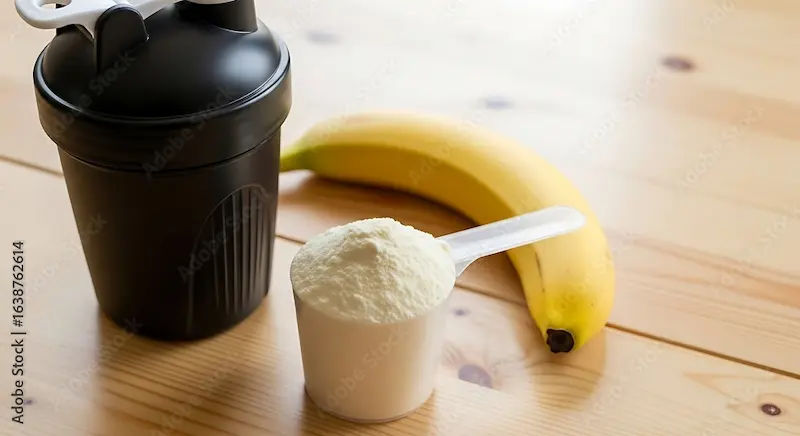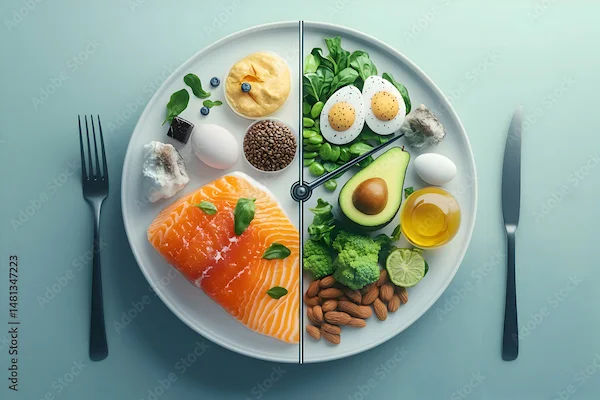How to Reduce Skinny Fat: A Simple Guide to a Healthier You
Learn how to overcome skinny fat. Discover effective diet, exercise, and lifestyle strategies to build muscle and lose fat for a toned physique.

Written by Dr.Sonia Bhatt
Last updated on 3rd Jul, 2025

Many people find themselves in a body type that feels hard to describe—neither overweight nor underweight, but still unhappy with how they look or feel. If you’ve got a slim frame but carry excess fat, especially around your belly, you might be dealing with a condition called "skinny fat." This is more common than you might think, and while it might seem frustrating, the good news is that it’s possible to change your body composition and reduce this extra fat by focusing on a few key areas.
What is Skinny Fat?
Before figuring out how to reduce skinny fat, it’s important to understand what it is and why it happens. Skinny fat is when a person appears thin, but their body fat percentage is higher than it should be. Often, this condition involves a lack of muscle tone and excess fat, especially around the belly area.
While someone with skinny fat may seem “normal” weight-wise, they often have less muscle and more fat than is healthy. The key to fixing this issue is building muscle and managing body fat through a balanced diet, exercise, and lifestyle.
Why Muscle Mass Matters
Building muscle is one of the most effective ways to reduce skinny fat. Muscle isn’t just for bodybuilders—it's essential for everyone, whether you're looking to improve your fitness or simply feel better in your own skin.
What Muscle Does for Your Body
Muscles play an important role in your overall body composition. The more muscle you have, the higher your metabolism becomes. This means your body burns more calories, even when you're not working out. This can help lower your fat percentage and make you look and feel leaner.
Muscles also help support joints, improve posture, and give the body strength and tone. Having more muscle helps the body use fat as energy, making it easier to burn fat and feel strong.
Why Building Muscle is Important
When you focus on building muscle, you make your body look firmer and more toned and improve your overall health. Muscle-building exercises help to boost your metabolism, which in turn helps with fat loss. More muscle means lifting heavier weights, moving better, and feeling stronger. In addition, muscle growth can make you feel more confident as you start to see physical changes in your body.
Nutrition: The Key to Reducing Skinny Fat
A healthy, balanced diet is one of the most important steps in reducing skinny fat. What you eat affects your muscle-building efforts and how your body stores fat.
Eating a Balanced Diet
To tackle skinny fat, you need to eat a balanced diet that gives your body the right nutrients to build muscle and burn fat. A good diet isn’t about extreme calorie cutting but about making healthier choices. Focus on eating plenty of protein, healthy fats, and carbohydrates that provide lasting energy.
Nutrients That Help Build Muscle
Protein is the star of the show when it comes to building muscle. After exercise, your muscles need protein to repair and grow stronger. Some great sources of protein are chicken, fish, eggs, beans, and tofu. Healthy fats are also important—they help to support your hormones, including those that help build muscle. Think of foods like avocados, nuts, and olive oil. Carbohydrates in whole grains, fruits, and vegetables give your body the fuel it needs to power through your workouts.
Building Good Eating Habits
When you’re trying to reduce skinny fat, it’s important to make smart eating choices. If you’re looking to build muscle, eating a slight calorie surplus (more calories than you burn) with plenty of protein will help. On the other hand, if your goal is to burn fat, a slight calorie deficit (fewer calories than you burn) combined with strength training can help reduce fat while keeping muscle. Avoid eating too many processed foods, as these can lead to fat storage instead of muscle gain.
Exercise: The Right Routine to Reduce Skinny Fat
Exercise is key to reducing skinny fat, but not just any exercise will do. The most effective way to improve body composition is a combination of strength training and cardio.
Strength Training
Strength training is the most important exercise when it comes to reducing skinny fat. Lifting weights or doing bodyweight exercises like squats, push-ups, or lunges builds muscle and helps you burn fat. It’s essential to focus on compound exercises—movements that work for multiple muscle groups at once, like squats, deadlifts, and bench presses. These exercises burn more calories and help you develop a leaner body.
Cardio
Cardio exercises, like running, cycling, or swimming, are great for improving your cardiovascular health and burning calories. However, don’t overdo it—too much cardio can burn muscle, which you want to avoid. Strength training and cardio balance are best for reducing skinny fat.
Creating a Balanced Workout Plan
Aim for at least three weekly strength training sessions, focusing on different muscle groups. You can also add cardio a few times weekly to keep your heart healthy and help burn fat. High-intensity interval training (HIIT) is a great addition to any plan because it enables you to burn fat faster while maintaining muscle.
Consult Top Dietician
Lifestyle Factors That Impact Skinny Fat
What you do outside of the gym and kitchen is just as important in reducing skinny fat. Sleep, stress management, and overall recovery all play a big role in how your body responds to your efforts.
The Importance of Sleep
Sleep is critical for muscle growth and fat loss. When you don’t get enough sleep, your hormones can become unbalanced, which may lead to fat gain. Aim for at least 7–8 hours of sleep per night to help your muscles recover and support fat loss. Good quality sleep also keeps your energy levels up, which makes it easier to stick to your workout routine.
Managing Stress
Chronic stress can lead to the release of cortisol, a hormone that promotes fat storage, especially around the belly. Managing stress is vital for reducing skinny fat. Practices like yoga, meditation, or simply taking time to relax can help lower cortisol levels and make it easier for the body to burn fat.
Tracking Progress
Tracking your progress is important to ensure you’re on the right path. However, the scale is not always the best way to measure success, so consider other methods for monitoring your changes.
Measuring Body Composition
Rather than focusing on weight alone, track your body fat percentage and muscle mass. Tools like body composition scales, skinfold callipers, or professional scans (such as DEXA) can help you see how much fat and muscle you have. These methods are more accurate in tracking changes in your body composition.
Adjusting Your Plan
As you track your progress, adjusting your diet and exercise plan based on the results is essential. If you aren’t seeing the changes you want, reassess your training intensity, nutrition, or recovery to make improvements.
Common Mistakes to Avoid
Some common mistakes can slow down your progress when trying to reduce skinny fat. Avoiding these can help you stay on track.
Too Much Focus on Cardio
Many people trying to reduce fat focus too much on cardio. While cardio is great for fat loss, it shouldn’t replace strength training. Strength training is the key to building muscle and reducing skinny fat, so balance your cardio and strength training to get the best results.
Not Getting Enough Protein
Protein is essential for building muscle. If you don’t eat enough, your body cannot repair and build muscle after exercise. Aim to eat enough protein throughout the day to support muscle growth.
Skipping Workouts or Being Inconsistent
Consistency is key. Skipping workouts or not sticking to your nutrition plan can set you back. Stay committed to your routine, and be patient—results take time.
Supplements: Helpful but Not Essential
Supplements can help support your progress, but they shouldn’t be relied upon as the main solution. Focus on food and exercise first, then consider adding supplements if necessary.
Protein Supplements
Protein powders can be helpful if you struggle to get enough protein from food alone. They can help you meet your protein goals, but whole food sources of protein should always come first.
Creatine and Performance Supplements
Creatine is a popular supplement that can help improve your strength during workouts. It allows you to lift heavier weights and build muscle more quickly. However, it’s important to talk to a healthcare professional before taking any new supplements.
Conclusion
Getting rid of skinny fat isn’t about finding a quick fix. It’s about building muscle, eating well, and making healthy habits a part of your everyday life. By focusing on strength training, eating nutritious foods, sleeping well, and managing stress, you can reduce skinny fat and improve your overall body composition. Stay consistent, track your progress, and remember that results will come with time and effort. With the right plan, you’ll feel stronger, healthier, and more confident in your body.
Consult Top Dietician
Consult Top Dietician

Ms Malabika Datta
Dietician
19 Years • Bsc (Clinical Nutrition & Dietetics), Msc (Dietetics & Food Service Management)
Kolkata
Malabika’s Diet Clinic, Kolkata

Dr Darshana R
General Physician/ Internal Medicine Specialist
15 Years • MBBS, MD, DNB (Internal Medicine), Diploma in Allergy, Asthma and Immunology , Fellowship in Diabetes
Bengaluru
Apollo Clinic, JP nagar, Bengaluru
(125+ Patients)

Neelanjana J
clinical nutrition
3 Years • Bsc., Msc. Nutrition and Dietetics.
Bengaluru
Apollo Clinic, JP nagar, Bengaluru
Ms Chetu Singhi
Dietician
20 Years • MSC Dietetics & Nutrition
Kolkata
RB Diagnostic - Dietician Diet2fit Chetu Singhi, Kolkata

Ms Geetanjali Mengi
Dietician
20 Years • BSC, MSC Dietetics & Food Service Management, PG Diploma in Dietetics & Hospital Food Service
Mumbai
Geetanjali Medical Nutrition Clinic, Mumbai
Consult Top Dietician

Ms Malabika Datta
Dietician
19 Years • Bsc (Clinical Nutrition & Dietetics), Msc (Dietetics & Food Service Management)
Kolkata
Malabika’s Diet Clinic, Kolkata

Dr Darshana R
General Physician/ Internal Medicine Specialist
15 Years • MBBS, MD, DNB (Internal Medicine), Diploma in Allergy, Asthma and Immunology , Fellowship in Diabetes
Bengaluru
Apollo Clinic, JP nagar, Bengaluru
(125+ Patients)

Neelanjana J
clinical nutrition
3 Years • Bsc., Msc. Nutrition and Dietetics.
Bengaluru
Apollo Clinic, JP nagar, Bengaluru
Ms Chetu Singhi
Dietician
20 Years • MSC Dietetics & Nutrition
Kolkata
RB Diagnostic - Dietician Diet2fit Chetu Singhi, Kolkata

Ms Geetanjali Mengi
Dietician
20 Years • BSC, MSC Dietetics & Food Service Management, PG Diploma in Dietetics & Hospital Food Service
Mumbai
Geetanjali Medical Nutrition Clinic, Mumbai




